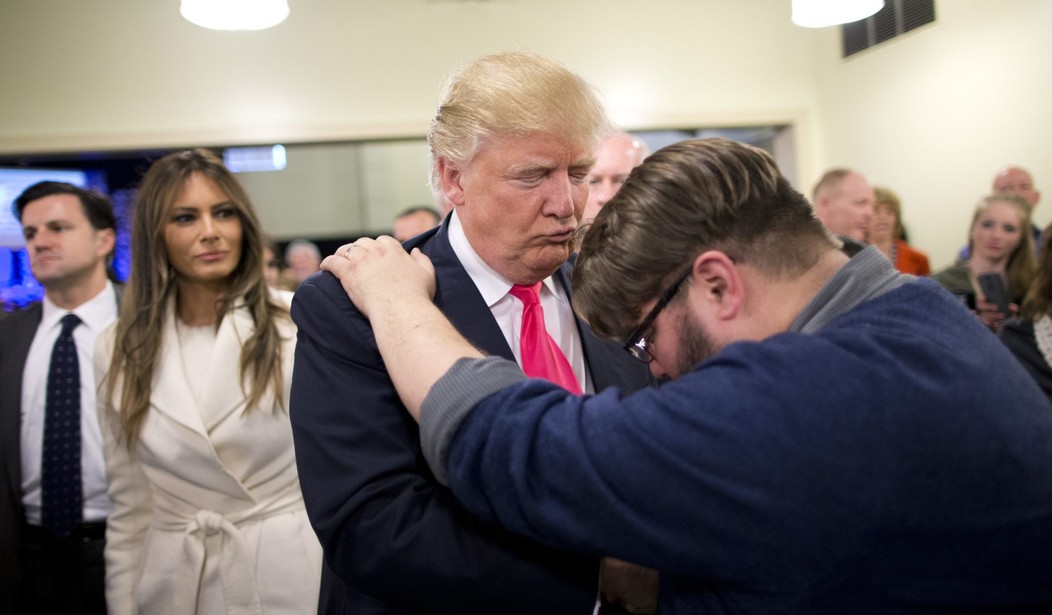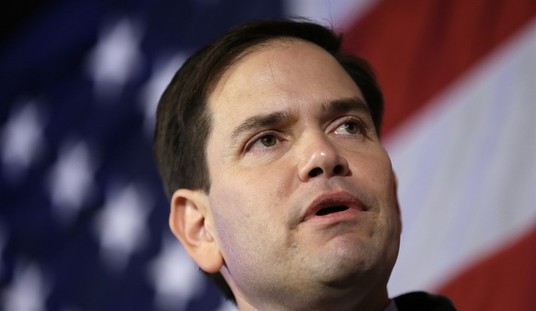Internal campaign memos leaked to BuzzFeed News reveal that Donald Trump essentially ignored advice on how to reach out to Christian social conservatives. Many have written that Christians were “cheap dates” for Mr. Trump — they had no idea how right they were. Not only did Trump require coaching on how to speak with conservative Christians, he didn’t even listen to it.
“The audience is CHRISTIAN SOCIAL CONSERVATIVES,” a Trump advisor wrote on July 17, 2015. “They are open to your candidacy but NEED TO KNOW that their issues are IMPORTANT TO YOU.”
BuzzFeed News cited other internal memos as well, which illustrate “just how tenuous the New York billionaire’s connection was to his party’s religious base at the outset of this election cycle.” They shine a spotlight into how The Donald’s small political team coached him on outreach to Christian conservatives, and how he ignored much of this advice.
On the issue of abortion, one memo urged, “Unless you are specifically asked, it is not beneficial to state that you support the exceptions of life of the mother, rape, and incest.” Another suggested that Trump “DEFLECT” any debate questions about school prayer by saying, “I employ thousands of individuals and make sure my employees have the freedom to express their faith however they see fit.” If asked whether he believed in “creationism or evolution,” an adviser suggested the candidate respond, “I believe in both” — and then added in a parenthetical, “(Mr. Trump — we may want to follow up on this.)”
On abortion, Trump has proven a dangerous loose cannon. Not only has he been all over the map on the issue, he also earned ire from both sides. Entirely unprovoked, he warned that mothers who have abortions should be punished. Although he walked this back, the fact that he would even mention it reveals a stunning lack of knowledge about the issue.
More pertinently to the emails, however, in April Trump emphatically declared that he would push for changing the GOP platform’s position on abortion to include the exceptions of rape and incest. Perhaps he considered Christian social conservatives already in the bag for him, and so he didn’t worry about alienating them.
I have not heard Trump speak about school prayer or about the freedom of his employees to express their faith. Neither of these issues seems to feature in his mind. Rather, he talks about “giving Christianity power,” a terrifyingly simple articulation of the dangerous temptation which followers of Jesus must avoid.
Finally, The Donald has not even mentioned the creation-evolution debate, to my knowledge. If he had followed the advice of his aides, Trump would have sparked a truly interesting debate on faith and science.
Patheos’ Hemant Mehta dismisses the idea of believing in both creation and evolution as “two completely contradictory ideas.” Mehta argued that “there’s no scientific justification” for “theistic evolution,” although he acknowledged that it is “a way to make all sides happy.” Humility when it comes to science is an important virtue, and I think a kind of theistic evolution may be a way to emphasize the fundamental compatibility between faith and science.
In any case, Trump never mentioned these issues, and completely ignored the advice on abortion.
Unlike Ted Cruz, Marco Rubio, and other candidates who ran in the primary, Christian culture and the language of faith and forgiveness did not come naturally to The Donald. Indeed, he has bragged about sleeping with women other than his wife, tried to use eminent domain to take an elderly widow’s home, and owns multiple casinos. (If the term “Nietzschean” means anything to you, you might want to check this out.) When did character stop counting?
Next Page: So how can we explain why so many evangelicals voted for Trump in the primary?
These points may indeed be moot — after all, exit polls showed Trump won self-identified evangelicals, especially in the South. But a deeper look at his victories reveals an important point. Ted Cruz did better in areas with higher church attendance rates, whereas The Donald performed well in places where people did not attend services as frequently.
Protestants have long looked down on Roman Catholics, saying that their church has a unique problem of cultural Catholics who do not attend mass regularly or think seriously about their faith. Trump’s success among cultural evangelicals, who might identify as evangelical but do not see the problems he presents to Christianity, suggests that this is not a uniquely Catholic problem.
The first memo about evangelical outreach came on the day before the 2015 Family Leadership Summit in Iowa. At that event, The Donald told the audience that he never asked for forgiveness, swore during his speech, and reassured the crowd, “I eat the little cracker.” Only later came “Two Corinthians.”
Nevertheless, white evangelical Christians are lining up behind Donald Trump more strongly than they did behind Mitt Romney at this time four years ago, according to a July Pew Research study.
To be fair, Trump’s suggestion of repealing the Johnson Amendment is a unique stance that many conservative Christians — such as Eric Metaxas — find favorable and positively surprising. The Donald has met with faith leaders on numerous occasions, and no less a figure than the (aging) Dr. James Dobson has called him a “baby Christian.”
These positives do not outweigh his negatives, but they are important to mention. In the end, many conservative Christians might fall in line regardless of their personal like or dislike of Trump.
With the Supreme Court in the balance, conservative Christians see little to no alternative but to back the man who can defeat Hillary Clinton in November, whatever his considerable drawbacks. Even so, it is noteworthy to consider how The Donald won the support of evangelicals, and how little they seemed to care about backing a man of character.









Join the conversation as a VIP Member